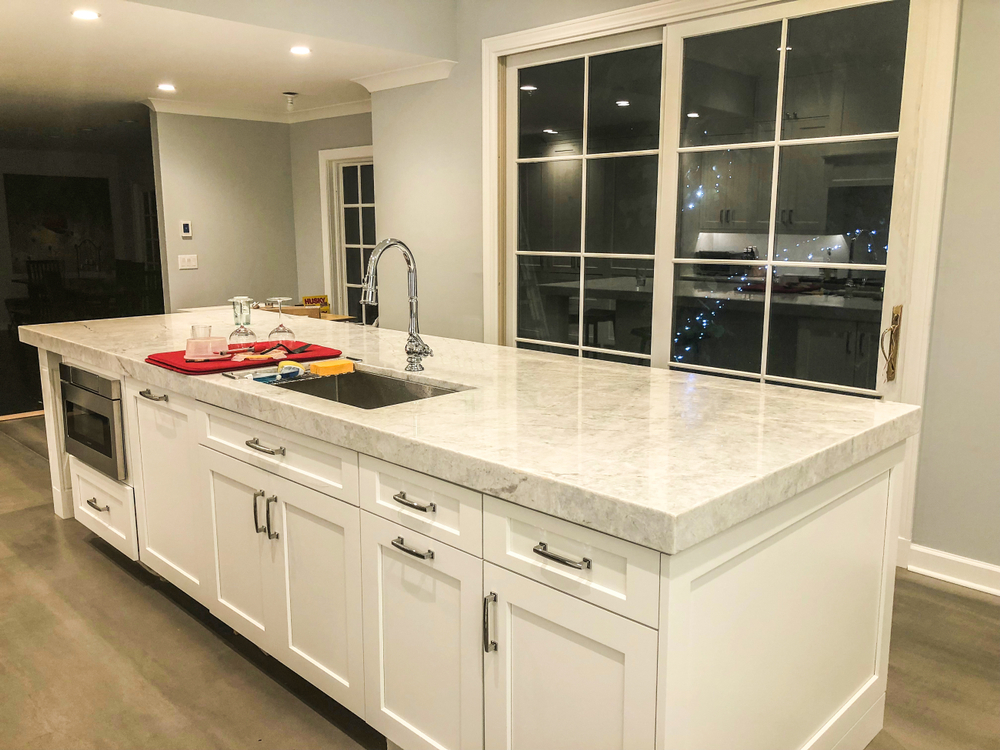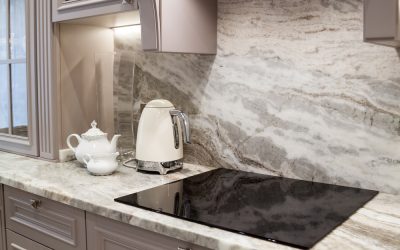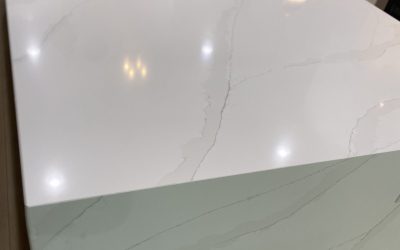You’ve probably heard that quartz is one of the best materials for countertops, and you wonder if it’s the right choice. In that case, you need to evaluate the quartz countertops’ pros and cons to help you decide. Thankfully, this guide explores the features of quartz.
What are some pros and cons of quartz countertops?
Quartz is a popular countertop material in many homes due to its beauty and durability. Perhaps that’s why you also contemplate installing it in your home. However, quartz countertops also have a few drawbacks, which you must know.
Here are the advantages and disadvantages of quartz countertops. Share on X- Pro: Durability
- Pro: Warranties
- Con: Installation Difficulty
- Pro: Versatile Appearance
- Pro: Non-Porous & Low Maintenance
- Con: Heat Damage Susceptible
- Pro: Stain Resistant
- Con: Indoor Use Only
1) Pro: Durability
Quartz countertops stand out when it comes to durability. They won’t scratch, crack, or get chipped easily due to their ultra-durable nature. If you want a countertop material that can last for years or decades, you can count on quartz.
2) Pro: Warranties
Since quartz is durable, many manufacturers will confidently offer warranties for their quartz countertops. So, it’s the best choice for homeowners who need long-term warranties. However, the warranties may only apply to original homeowners.
3) Con: Installation Difficulty
Installing quartz countertops requires a skilled professional who can level, measure, and fix the slabs on the cabinets or kitchen islands. It’s not a DIY project, making it costlier. Besides, the material is heavy, calling for a solid foundation to support the weight.
4) Pro: Versatile Appearance
Another reason some homeowners choose quartz over other natural stone countertops is its versatility. You can install it in the bathroom, fireplaces, and kitchen countertops. It also comes in various colors, making it easy to choose what suits your style.
5) Pro: Non-Porous & Low Maintenance
A porous countertop material can harbor germs and bacteria in the pores, making it hard to disinfect and clean. Liquids can also seep into the countertop and stain it. The good news is that quartz countertops are non-porous and easy to maintain.
6) Con: Heat Damage Susceptible
Although quartz itself is heat-resistant, the resin that holds quartz particles together is not. When you expose a quartz countertop to heat, the resin will melt, resulting in discoloration. So, you must not place hot cookware directly on the quartz countertop.
7) Pro: Stain Resistant
Since quartz countertops are non-porous, they are highly resistant to stains. Stains usually occur on countertops when a liquid spills on the surface and penetrates through the pores. This problem is common in granite or marble because they are porous.
8) Con: Indoor Use Only
Quartz countertops are only suitable for indoor use. When installed outdoors and exposed to direct sunlight, the UV rays from the sun will change the color of the countertops, making them look ugly. Use other materials for outdoor countertops.
Choosing Beautiful Engineered Stone for Your Home
Now that you understand the quartz countertops pros and cons, you can decide if it’s the right choice for your home improvement project. The truth is that its advantages surpass its drawbacks, hence a perfect countertop material for kitchens and bathrooms.
Connect with us to learn more advantages and disadvantages of quartz countertops.





![5 Reasons to Consider Quartz Countertops [Infographic]](https://www.rdmarble.com/site/wp-content/uploads/2024/02/shutterstock_1839673636-400x250.jpg)

